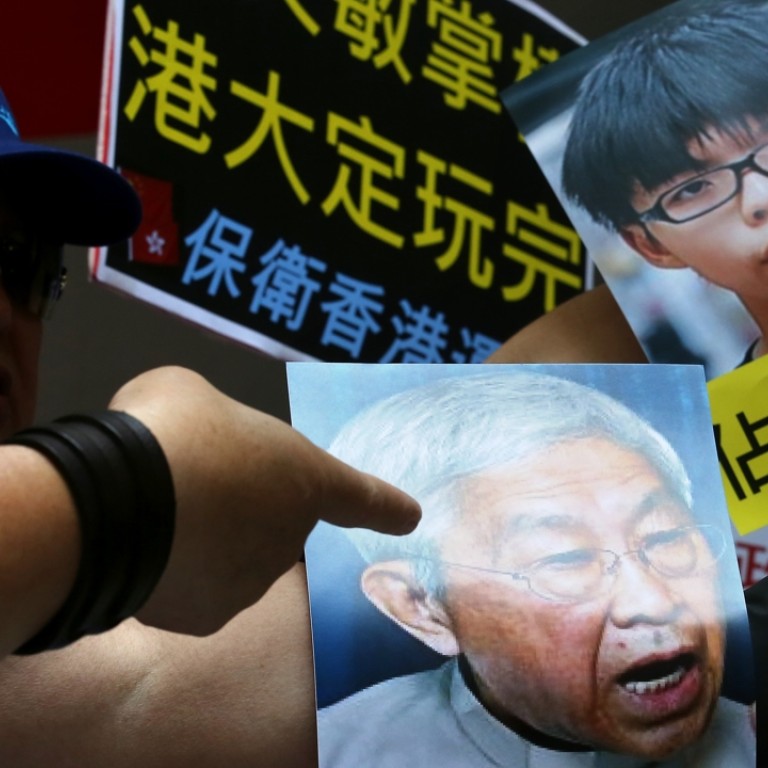
Hong Kong’s youth are getting obsessed with this one German export
Why late 17th century philosophers are gaining ground
Unresolved and worsening socioeconomic problems are a necessary, but not sufficient cause for political violence to emerge. That occurs only when opposing camps have closed their minds, become intolerant, and perceive the other side as a menace that should not prevail.
An enlightened society requires tolerance, for otherwise liberal pluralism will give way to oppressive monism. Unless everyone is on the same side, hatred comes to define human relationships.
Attacking fallen policemen is an extreme form of violence. It is an act not just against the state, but against humanity. Civil disobedience cannot justify such extreme acts, not even when it is in the name of thwarted political aspirations for democracy. Impatience is intolerance in another form.
These thinkers, who were mostly of humble origin, were a highly intelligent lot but they were also socially crushed and politically miserable human beings
The political sentiment expressed by nativist groups and their adherents is that they are defending their values, their lifestyle, their place, and their resources against mainland Chinese encroachment. They are fighting for their dignity. They were deeply disappointed by the “August 31st” decision and when 79 days of the Occupy Movement was politically ignored. Their dignity had been affronted. But does this justify extreme acts of violence?
Voting is so special because one has faith that “counting heads” is better than “breaking heads” as a solution to political disputes. Human life and, therefore, human dignity is valued for its own sake, and not as a means to an end. If democratic ideals have to be pursued through non-democratic means, then that ideal is tarnished.
But this enlightened view of liberal democratic ideals is no longer how some in Hong Kong view things today. Why is that the case?

The progress made in economic and political liberalism around the world from the 1980s, including in Hong Kong and China, has waned in the wake of rising economic inequality and social conflict, and the effects of the 2008 financial crisis and subsequent global economic slowdown.
An obvious outcome has been the ascendance of anti-capitalist ideas.
Historically, left-wing socialist ideas have led the battle against capitalism. But what stands out in Hong Kong is the rise of nativism. This has spread very quickly, especially among youths and in the connected online world.
The intellectual roots of nativism first appeared among German thinkers in the late 17th century, such as Herder, Kant, Schiller, Fichte and Hegel, who were reacting to the Enlightenment and advances of scientific knowledge.
These thinkers, who were mostly of humble origin, were a highly intelligent lot but they were also socially crushed and politically miserable human beings.
Their Germany had failed to achieve centralised statehood in the way England and France did, and had experienced the violent dislocation of the Thirty Years War during which 7.5 million people were killed (mostly Germans), constituting 1.4% of the world’s population at that time.
Against this background they developed the idea that men belonging to a group, class, sect or ethnicity could together create history and change the course of nature, a notion that has inspired both fascist and communist causes.
Nativism in Hong Kong draws its inspiration explicitly from German philosophical influence. For example, Chan Wan, an assistant professor who recently lost his position at Lingnan University, offers a city-state narrative for Hong Kong that is impregnated with German poetic idealism. As romanticist literature it has influenced young minds in Hong Kong. Youths growing up in an alienating environment of poverty and hopelessness seek imagination. But the German influence will not make them liberal, only more populist and unmistakably nativist.
On the Chinese mainland, intellectual thought has become active again after three decades of social change and dislocation brought about by double-digit economic growth. A faction of the New Left that critiqued American imperialism and neoliberalism in the 1990s has reconnected with Confucianism and German idealistic intellectual traditions that are more statist and illiberal in character, and is gaining influence in official circles.
When this dominant ideology meets rising nativism in Hong Kong, confrontation is the most likely outcome. Both have their intellectual roots in illiberal German idealism. “One-country two-systems” in Hong Kong is now held hostage to growing intolerance.
John Maynard Keynes once said, “The ideas of economists and political philosophers, both when they are right and when they are wrong, are more powerful than is commonly understood. Indeed, the world is ruled by little else. Practical men, who believe themselves to be quite exempt from any intellectual influences, are usually slaves of some defunct economist.” How true! Economists at their worst wreck only economies; political philosophers with closed minds wreck politics, and with it everything else.
Richard Wong Yue-chim is Philip Wong Kennedy Wong Professor in Political Economy at the University of Hong Kong

